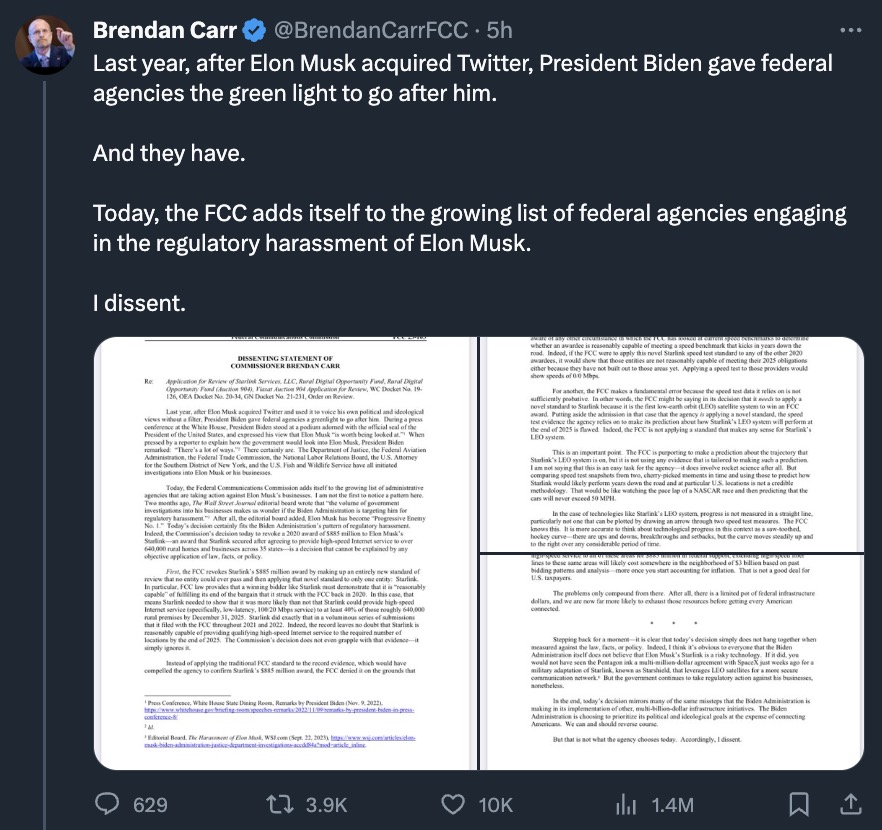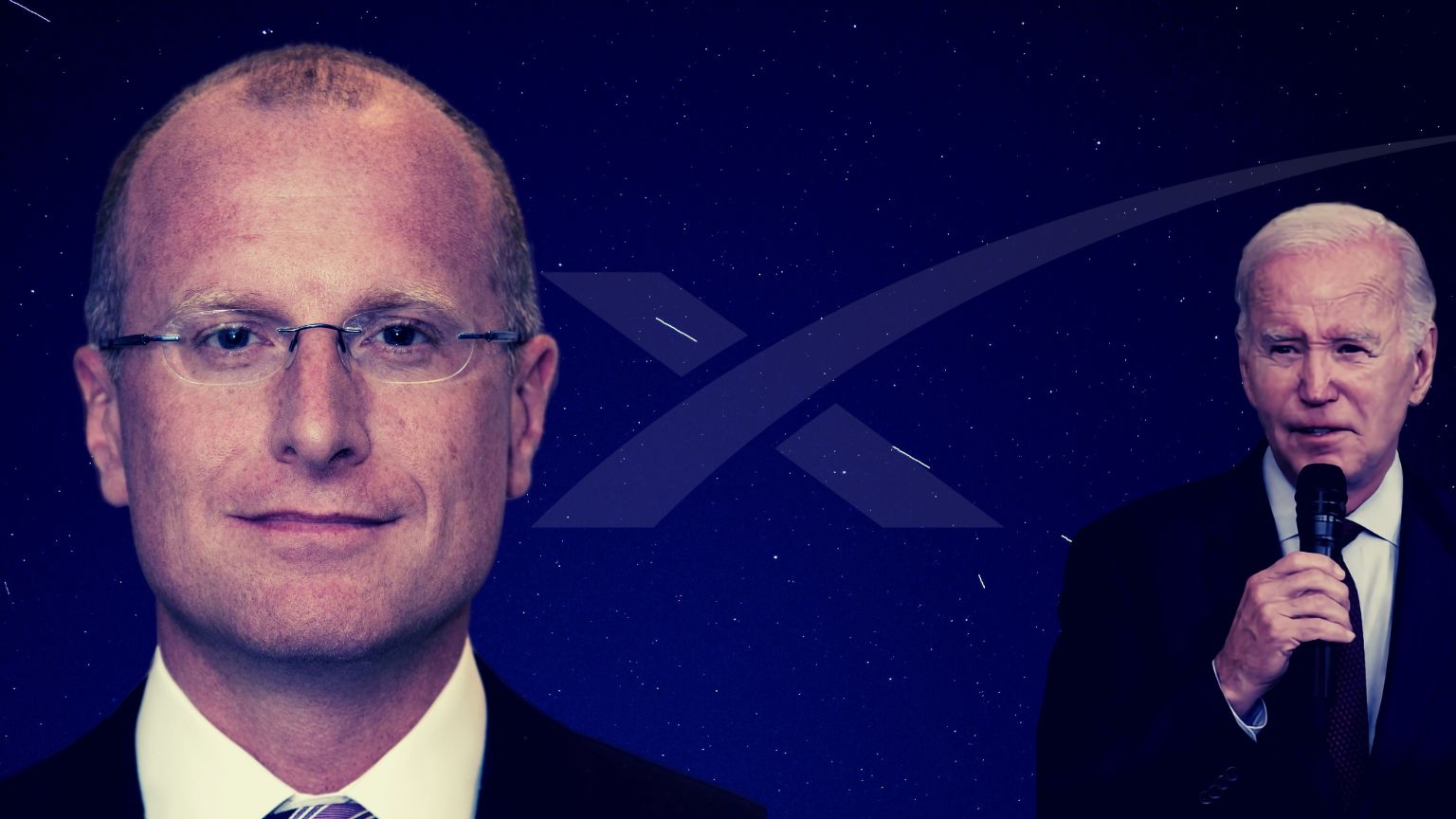The Federal Communications Commission (FCC) has rejected Starlink’s request for an $885 million subsidy, a decision that has sparked controversy, especially among its commissioners. Brendan Carr, an FCC Commissioner, has voiced a strong dissent, suggesting the decision is politically motivated and not based on objective legal, factual, or policy grounds.
According to the FCC, “After reviewing all of the information submitted by Starlink, the Bureau ultimately concluded that Starlink had not shown that it was reasonably capable of fulfilling RDOF’s requirements to deploy a network of the scope, scale, and size required to serve the 642,925 model locations in 35 states for which it was the winning bidder.”
The FCC also alleged that, “At the time of the Bureau’s decision, Starship had not yet been launched. Indeed, even as of today [i.e. over a year later], Starship has not yet had a successful launch; all of its attempted launches have failed. Based on Starlink’s previous assertions about its plans to launch its second-generation satellites via Starship, and the information that was available at the time, the [Wireline Competition] Bureau necessarily considered Starlink’s continuing inability to successfully launch the Starship rocket when making predictive judgment about its ability to meet its RDOF obligations.”

Carr asserts that the decision is part of a broader pattern of regulatory actions against Elon Musk’s businesses, particularly following Musk’s acquisition of Twitter, his unfiltered political expressions, and his commitment to free speech. Carr references a statement by President Biden, suggesting a governmental inclination to scrutinize Musk.
In November 2022, soon after Musk took the reins at Twitter (now X), President Biden said the following:
“I think that Elon Musk’s cooperation and/or technical relationships with other countries is worthy of being looked at. Whether or not he is doing anything inappropriate, I’m not suggesting that. I’m suggesting that it wor- — worth being looked at. And — and — but that’s all I’ll say.”
Biden’s response came after being asked if Musk, and his purchase of Twitter, was a threat to national security, framed with the idea of involving money from Saudi Arabia.
Carr observes that various federal agencies, including the Department of Justice and the Federal Aviation Administration, have launched investigations into Musk’s ventures.
“The Department of Justice, the Federal Aviation Administration, the Federal Trade Commission, the National Labor Relations Board, the U.S. Attorney for the Southern District of New York, and the U.S. Fish and Wildlife Service have all initiated investigations into Elon Musk or his businesses,” Carr wrote in his dissent.
Carr argues that the FCC’s revocation of the $885 million award to Starlink, intended to provide high-speed internet service to over 640,000 rural homes and businesses across 35 states, defies any objective application of law, facts, or policy. He criticizes the FCC for creating and applying a new standard of review solely to Starlink, which he deems impossible for any entity to meet.
According to Carr, Starlink has demonstrated that it is “reasonably capable” of fulfilling its commitment to provide high-speed internet service to the required locations by the end of 2025. He accuses the FCC of ignoring substantial evidence supporting Starlink’s capability and instead applying an irrelevant current speed test to evaluate Starlink’s future performance.
Carr also points out a when he believes is a flaw in the FCC’s methodology, likening it to predicting the outcome of a NASCAR race based on the pace lap. He emphasizes that technological progress, especially in the case of Starlink’s Low-Earth Orbit (LEO) satellite system, cannot be accurately assessed through simplistic measures.
Moreover, Carr highlights the negative implications of the FCC’s decision on rural communities, which will remain on the wrong side of the digital divide. He also notes the financial impact on American taxpayers, as alternative solutions to bring high-speed internet to these areas would likely cost significantly more than the amount Starlink was awarded.
Despite Carr’s dissent and the contentious nature of the FCC’s decision, the subsidy has been revoked, leaving the future of rural internet connectivity in these areas uncertain. Carr’s perspective frames the decision as a politically influenced move that overlooks the potential benefits of Starlink’s technology for underserved communities and highlights the broader implications of this decision within the context of the Biden administration’s regulatory approach.
We obtained a copy of Carr’s dissent for you here.






















